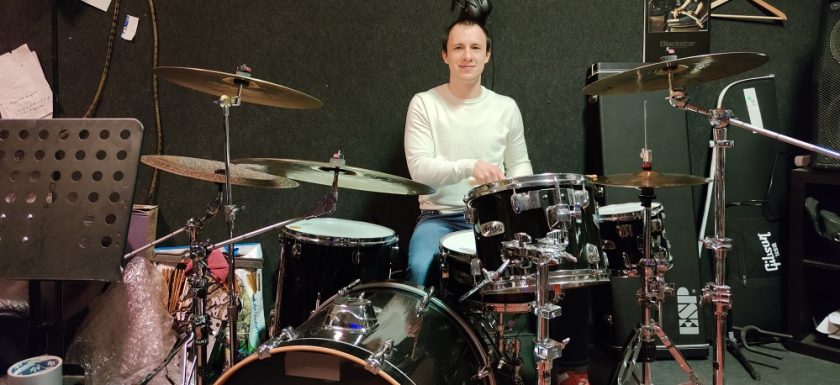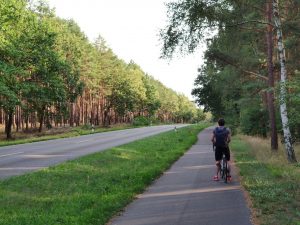
Denis comes from Russia. He tells us how he got into energy materials at HZB and how he keeps this passion going thanks to a good balance between science, sport and music.
Can you tell us more about your career from the Wolga to the Spree?
I grew up in fact in Engels, a town 1000 km south from Moscow. At 15 I moved to Moscow to start boarding school there and later on Moscow State University. During my Science Master’s I did an internship in Strasbourg, it was a project in material sciences and the year after, they invited me again to finish the job; so I stayed two additional months in Europe. I simply loved it!
What do you like about Europe and especially in the “scientific world”?
I knew to 95% that I wanted to go to Europe. Here so-called work and life balance really exists and I noticed that immediately when I first came to Strasbourg. You can still stay at work more and come on weekends, but you are not obliged to do that. And it might be confusing, but it even motivates me to work more. In addition to work, it is much easier to travel within Europe once you are here. There are lots of countries with a different history, beautiful nature and their own culture. And it is still not that far from Russia, so I could be at home in 3 hours if I wanted to. Of course, this changed a lot this year and I hope it goes back to normal soon.
What are you working on and why did you choose this topic?
I am working on the mechanisms of the oxygen evolution reaction (OER)– here at HZB in the group of Marcel Risch. Combining microkinetic simulations with electrochemical experiments I am trying to identify the effect of the structure on the mechanism of OER and further implement the strategies for controlling key steps of the mechanism.
Why I wanted to study this is hard to say, I enjoy working on topics related to materials for energy storage. Already at university when I had to choose my lab, I was attracted by energy topics. Also, Germany is very impressive in terms of renewable energy. I wish my country would try harder to commit to these green themes. I believe, when the people’s mind shifts, I would go back to Russia and work there pushing forward renewable energy.
Why did you go into academia and not industry?
For me this is a question of personality. The step towards PhD came quite naturally after my internship. Working in science suits me, not so tight schedules, meeting smart people, many exciting and news topics! Science is like digging, you always have something new to do on your own.
What do you remember from your start?
It was August 2019, so I started nearly with the beginning of the pandemic. With my colleagues, we all learnt to work from home for a while. In the beginning, it was fine, I had enough to do at home, thinking about strategy, publishing… When I could go back to the lab, all came back very quickly. Lab work is like riding a bike, you do not lose it.

What do you do in your free time?
Sport is central to me. I go to the gym and do weights – this is awesome. It is exactly what I need to empty my mind and change my perspective on things. I do not think directly of a scientific topic while I am in the gym. However, afterwards, I realise often that taking some distance helped me to see a question or a problem differently. It is definitely helpful.
During the pandemic, I realised also how important it is to fill the additional “free time” with nourishing things. I cannot just lay around and be bored.
How do you refill your batteries now that gyms are closed?
It is true with sport I generally work better; it refreshes my mind and helps me mentally. The new situation was not beneficial as I cannot do my weights at home. I was looking for something motivating and filling me with joy… to make the story short: I started playing the drums a long-awaited dream of mine. A good coincidence, a post-doc in my group at HZB gave me a contact of a guy who is teaching drums. Now I have a lesson every week. I very much enjoy learning and playing the drums. It opens me up to new ways of thinking and there I find a lot of motivation and energy.
Of course, it does not help with fitness. So, I hope gyms will open soon again. But meanwhile, I may consider cycling to work…
What are your pieces of advice for young scientists who want to go for a PhD?
You need courage, maybe a bit of stubbornness, you know, in a good way. Be open to discuss probabilities and never forget you are not walking alone, others have similar experiences.
Thank you very much for this interview, Denis.
Did you like this interview? You may enjoy also reading other interviews in the series #phdlife: science.hzbblog.de/tag/phdlife
